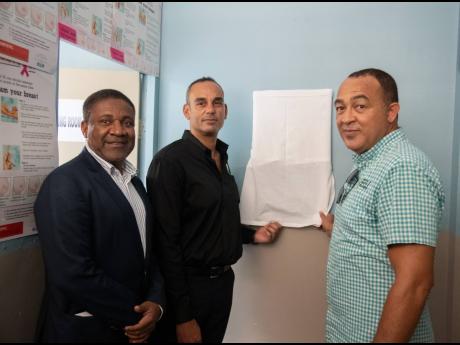Hernia surgeries on hold
One-third of the more than 6,000 surgery cases now in backlog at public hospitals across the island include people suffering from hernia-based problems that require elective surgeries for repair.
In May, Health and Wellness Minister Dr Christopher Tufton said that the Government aimed to mop up most of the backlog of surgeries in the public health system by conducting 1,000 operations over the next 10 months.
Tufton said the 2,000 cases have been backed up as a result of the side-effects of the pandemic and the increase in demand for healthcare regarding COVID-19.
“We have 2,000 hernia cases right now that are backed up over the last two years. People waiting in pain every day til di panadol can’t work to get that treatment which they cannot afford in the private health facility for whatever reason,” Tufton said.
“It’s obvious. COVID caused us to impose significant restrictions on [the] movement of people; caused us to restrict too, the elective activities; elective surgeries, [so] people who had a hernia [continue to suffer], which won’t kill you, not immediately anyway, but it is pain and suffering for an extended period,” he added.
The minister was speaking at the official ceremony for the adoption of the Port Royal Health Centre on Thursday.
In assessing this problem, Tufton reiterated that the Government came up with a solution to get help from the diaspora by importing the services of healthcare providers from overseas.
This solution, he said, is receiving favourable responses from people in the diaspora.
“We made that pitch and I am heartened by the responses so far. The key pitch is to bring diaspora members into Jamaica; operating theatre nurses who, many were trained here, went abroad largely for economic purposes, but maintained their strong connection and they want to help,” he said.
Tufton noted that although there are issues concerning public health institutions, including operating theatres under stress without resources that break down from time to time, outside specialised help is needed in Jamaica.
“We have to adjust our mindset to working with others to solve the problems that we face. Humanity will be better off,” Tufton argued.
“What I would be disappointed with is resistance here on the local front, whether it is by operatives in the health system or outside to that kind of partnership to solve the problem of a Jamaican that is suffering for the last year and a half,” he added.

